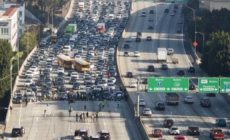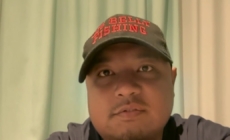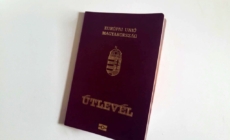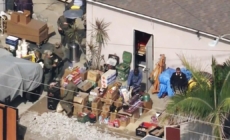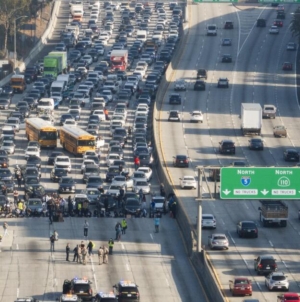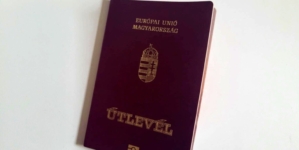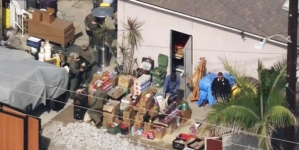-
Pro-Palestinian freeway protesters could see charges dropped - 7 seconds ago
-
Hearts Break As Dog ‘Minding His Own Business’ at Park, Then It All Changes - 2 mins ago
-
American stranded in Jamaica describes awaiting Hurricane Melissa - 5 mins ago
-
Hungarian Citizens Gain Even More Travel Freedom with Stronger Passport - 23 mins ago
-
Katy Perry, Justin Trudeau visit famed French cabaret frequented by Hollywood stars - 38 mins ago
-
How ‘election integrity’ could lead to voter suppression - 40 mins ago
-
Candy company files for bankruptcy days before Halloween - 42 mins ago
-
'What matters the most is we won' 💙 Shohei Ohtani on historic performance in Dodgers' Game 3 win - 44 mins ago
-
PM Viktor Orbán to Personally Negotiate with Donald Trump amid Energy Concerns - 57 mins ago
-
Students evacuated during raid of illegal East L.A. fireworks lab - about 1 hour ago
L.A. County asks court to block release of thousands of deputy photos
Los Angeles County is attempting to block a journalist from obtaining the names and photographs of about 8,500 deputies and other sworn personnel employed by the Sheriff’s Department.
The legal dispute centers on a public records request filed in April 2023 by Cerise Castle, an independent journalist. Castle asked county officials to release the names and official headshots of all deputies not working undercover, then sued last summer after her request was denied, alleging a violation of California’s open records law.
Castle has argued that releasing the images would boost transparency and improve the public’s knowledge of law enforcement activity.
The department has maintained in court filings that the images are not public records and that they “do not substantially relate to the conduct of the public’s business.”
L.A. County Superior Court Judge James C. Chalfant rejected the county’s position, writing in a July decision that its lawyers are “confusing the public’s general lack of access … with whether official photographs are a public record.”
The county has also claimed that deputies’ personal privacy, “personal safety and effectiveness in their roles” could be harmed by the release of the images.
Castle’s battle with the Sheriff’s Department echoes a similar case involving photos of Los Angeles Police Department officers. In 2022, journalist Ben Camacho and the activist group Stop LAPD Spying Coalition posted departmental photos and other information about LAPD officers, which they posted online in a searchable database dubbed Watch the Watchers.
The database provoked a furor within the LAPD, which led to the city unsuccessfully suing in an attempt to claw back the photos. Some officers also filed a lawsuit claiming they were endangered by the release because they worked undercover.
In response to questions about Castle’s lawsuit, the Sheriff’s Department released a statement to The Times that said it is “deeply concerned” about the prospect of releasing thousands of deputy headshots.
“Such a broad request risks compromising deputies’ privacy and safety in an era of advanced technology and artificial intelligence,” the statement said. “Additionally, such disclosures endanger undercover operations, discourage deputy recruitment amid nationwide hiring challenges, and undermines efforts to protect those who selflessly serve our communities.”
In his July decision, Chalfant directed L.A. County to release the headshots with the caveat that any deputies who once worked undercover could argue for their photos’ exclusion from release.
The judge wrote that the county had not demonstrated that there was a “specific safety concern regarding any particular officer,” adding that “vague concerns do not establish any specific danger” to individual officers.
Castle is best known for her coverage of so-called deputy gangs with the Sheriff’s Department. Brash and outspoken at times, she has a large following on social media and previously reported for Vice News and NPR before going freelance.
Castle said in an interview with The Times that the county’s arguments for withholding the photos don’t “meet the standard under state law.”
“They’re not presenting any real arguments,” she said. “All of this stuff is speculation and hypothetical situations that haven’t occurred.”
Castle has also worked for the progressive news site Knock LA, as did Camacho when he obtained the LAPD officer photos that became the Watch the Watchers database.
The two reporters are currently involved in a lawsuit against Ground Game LA, the nonprofit organization that founded Knock LA. They have sued for nearly $5 million, claiming the organization improperly profited off their work.
Ground Game LA has alleged that the reporters tried to assume control of the site, claiming they improperly took and used its trademarked name, its mailing list and other materials.
Castle’s path to obtaining the deputy photos hit a speed bump this month with the California 2nd District Court of Appeal. The Superior Court’s ruling in Castle’s favor was paused pending a review by the higher court’s three-judge panel.
Castle has argued in recent court filings that the release of the images would “further her reporting about deputies, focusing on deputies who were involved [in] shootings, misconduct, and deputy gangs.”
Susan Seager, an attorney for Castle, said there’s no good reason for the photos to be withheld.
“We think they just don’t want the public to hold them accountable,” Seager said. “They don’t want the public to know what they’re doing.”
Castle said her case resonates beyond the courtroom, given the ongoing raids across L.A. County by federal immigration agents wearing face coverings and increasing use by law enforcement of facial recognition and other technologies that pose a threat to citizens’ privacy.
“In the moment that we are in now, where we are seeing masked agents ripping people off of the street and away from their families, I think that this lawsuit becomes even more relevant,” she said.
Source link
